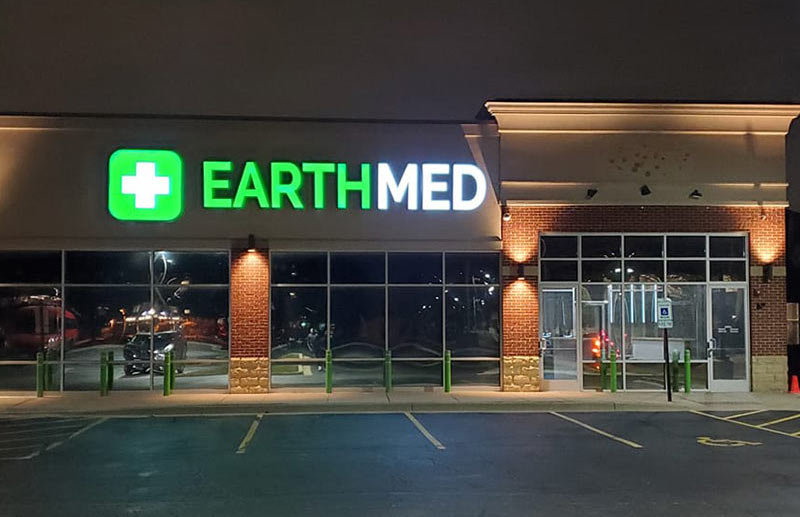Are you at least 21 years of age or hold a valid medical marijuana card?
Daily Specials
{{ special.title }}
{{ special.description }}
*{{ note }}EARTHMED BLOG

Understanding HB2911 and Its Impact on Illinois Cannabis Laws

House Bill 2911 (HB2911) is a significant piece of legislation in Illinois that has recently sparked considerable debate. This bill is crucial for medical marijuana patients as it aims to expand their rights and improve access to their medicine. However, the bill's progress has been hindered by corporate lobbying and legislative delays, making it a hot topic in Illinois.
Legislative Session Overview
The recent spring legislative session in Illinois concluded without addressing HB2911, leaving many stakeholders concerned about the future of cannabis legislation in the state. This marks the second consecutive year that marijuana legislation has been overlooked. The failure to pass this bill has left many medical marijuana patients and advocates disappointed, as they continue to face barriers in accessing their medication.
In the past, Illinois has made significant strides in cannabis legislation, including the legalization of recreational marijuana. However, further improvements to the medical marijuana program have been stalled.
Key Provisions of HB2911
HB2911 includes several important provisions aimed at improving the medical marijuana program in Illinois. These provisions are designed to enhance patient access and ensure fair treatment within the cannabis industry.
Major Provisions:
- Patient Rights: The bill allows medical marijuana patients to obtain their medication from any licensed dispensary, not just the 55 original medical dispensaries.
- Medical Tax Rate: Patients would continue to pay the medical tax rate rather than the higher recreational rate, making their medicine more affordable.
- Access Improvements: Proposals include allowing curbside pickup and drive-thru services for patients, as well as permitting online doctor examinations to streamline the certification process.
These changes aim to make it easier for patients to access their medication, particularly those with mobility issues or living in areas with limited dispensary options. Additionally, maintaining the medical tax rate would provide financial relief to patients who rely on cannabis for their health needs.
Corporate Influence and Lobbying
One of the significant challenges facing HB2911 is the influence of corporate lobbying. Large multi-state operator (MSO) cannabis companies have been actively lobbying to amend parts of the bill, leading to accusations of corporate greed and hindering the bill's progress.
Corporate cannabis companies have lobbied to change provisions that allow medical marijuana patients to access their medicine at any dispensary while paying the medical tax rate. While these lobbying efforts have led to delays and amendments that do not fully address the needs of patients and small dispensaries, non-profit organizations, such as the Cannabis Equity Coalition of Illinois, have criticized these corporate actions, arguing that they prioritize profit over patient care.
The lobbying has resulted in maintaining restrictions on patient access while also limiting their ability to obtain medication conveniently and affordably. This means that smaller dispensaries and new market entrants face significant challenges due to the influence of large corporations, which can stifle competition and innovation in the industry.
Impact on Smaller Dispensaries and Local Growers
The lobbying efforts by this MSO have been seen as a move to maintain its dominant position in the market, which could limit opportunities for smaller businesses. Local craft growers and small dispensaries may struggle to compete with larger companies if HB2911 does not pass in its current form, potentially stifling diversity and innovation in the industry.
Social Equity Applicants and New Entrants
HB2911 also includes provisions aimed at helping new entrants and social equity applicants in the cannabis industry, but these have faced significant hurdles.
Six-Month Extension for New Cannabis Businesses:
- Application Process: The bill proposes a six-month extension for new cannabis businesses to find suitable locations and secure funding.
- Barriers to Entry: Many social equity applicants face challenges in navigating the complex application process and meeting regulatory requirements.
Challenges Faced by Social Equity Applicants:
- Financial Barriers: Access to capital remains a significant barrier for many social equity applicants, hindering their ability to establish and grow their businesses.
- Regulatory Hurdles: Navigating the regulatory landscape can be particularly challenging for new entrants who lack the resources and expertise of larger, established companies.
Proposed Solutions for New Entrants:
- Funding Support: Proposals include providing financial assistance and resources to help social equity applicants secure the necessary funding and support.
- Regulatory Guidance: Offering guidance and support to help new entrants navigate the regulatory process and meet compliance requirements.
Failed Amendments and Their Implications
Several amendments proposed in HB2911 aimed at improving patient access and streamlining cannabis regulations failed to pass, resulting in significant implications for the cannabis community in Illinois.
Drive-Thru and Curbside Service Provisions:
- Proposed Convenience: The bill included provisions for drive-thru and curbside services, which would make it more convenient for patients to obtain their medication.
- Legislative Failure: These amendments did not pass, meaning that patients continue to face barriers to accessing their medicine conveniently.
Retail Tax Exemption for Medical Patients:
- Tax Relief: One of the key provisions was to exempt medical marijuana patients from paying retail taxes on their purchases.
- Current Limitations: With the failure of this amendment, patients can only get tax exemptions at the original 55 medical dispensaries, limiting their options.
Continuation of Current Medical Marijuana Dispensary Limitations:
- Limited Access: The failure to pass these amendments means that medical marijuana patients are still restricted in where they can purchase their medication.
- Impact on Patients: This limitation continues to pose challenges for patients, especially those who live far from the original 55 dispensaries.
The debate over HB2911 highlights the complex interplay between corporate interests, patient needs, and regulatory challenges in the Illinois cannabis industry. As the state prepares for the upcoming veto session, it is crucial for lawmakers to find a balanced solution that addresses the needs of all stakeholders. By prioritizing patient access, supporting small businesses, and ensuring public health, Illinois can create a robust and inclusive cannabis market that benefits everyone.
How do you feel about HB2911? Hit me up on social media, and let’s spark up a conversation about it.
{{ locations[0].name }}
{{ locations[0].address }}{{ locations[0].city }}, {{ locations[0].state }} {{ locations[0].zip }}
{{ locations[0].phone }}
Hours
Sun: {{ locations[0].hours_recreational.Sunday }}Mon: {{ locations[0].hours_recreational.Monday }}
Tue: {{ locations[0].hours_recreational.Tuesday }}
Wed: {{ locations[0].hours_recreational.Wednesday }}
Thu: {{ locations[0].hours_recreational.Thursday }}
Fri: {{ locations[0].hours_recreational.Friday }}
Sat: {{ locations[0].hours_recreational.Saturday }}
{{ locations[1].name }}
{{ locations[1].address }}{{ locations[1].city }}, {{ locations[1].state }} {{ locations[1].zip }}
{{ locations[1].phone }}
Hours
Sun: {{ locations[1].hours_recreational.Sunday }}Mon: {{ locations[1].hours_recreational.Monday }}
Tue: {{ locations[1].hours_recreational.Tuesday }}
Wed: {{ locations[1].hours_recreational.Wednesday }}
Thu: {{ locations[1].hours_recreational.Thursday }}
Fri: {{ locations[1].hours_recreational.Friday }}
Sat: {{ locations[1].hours_recreational.Saturday }}






